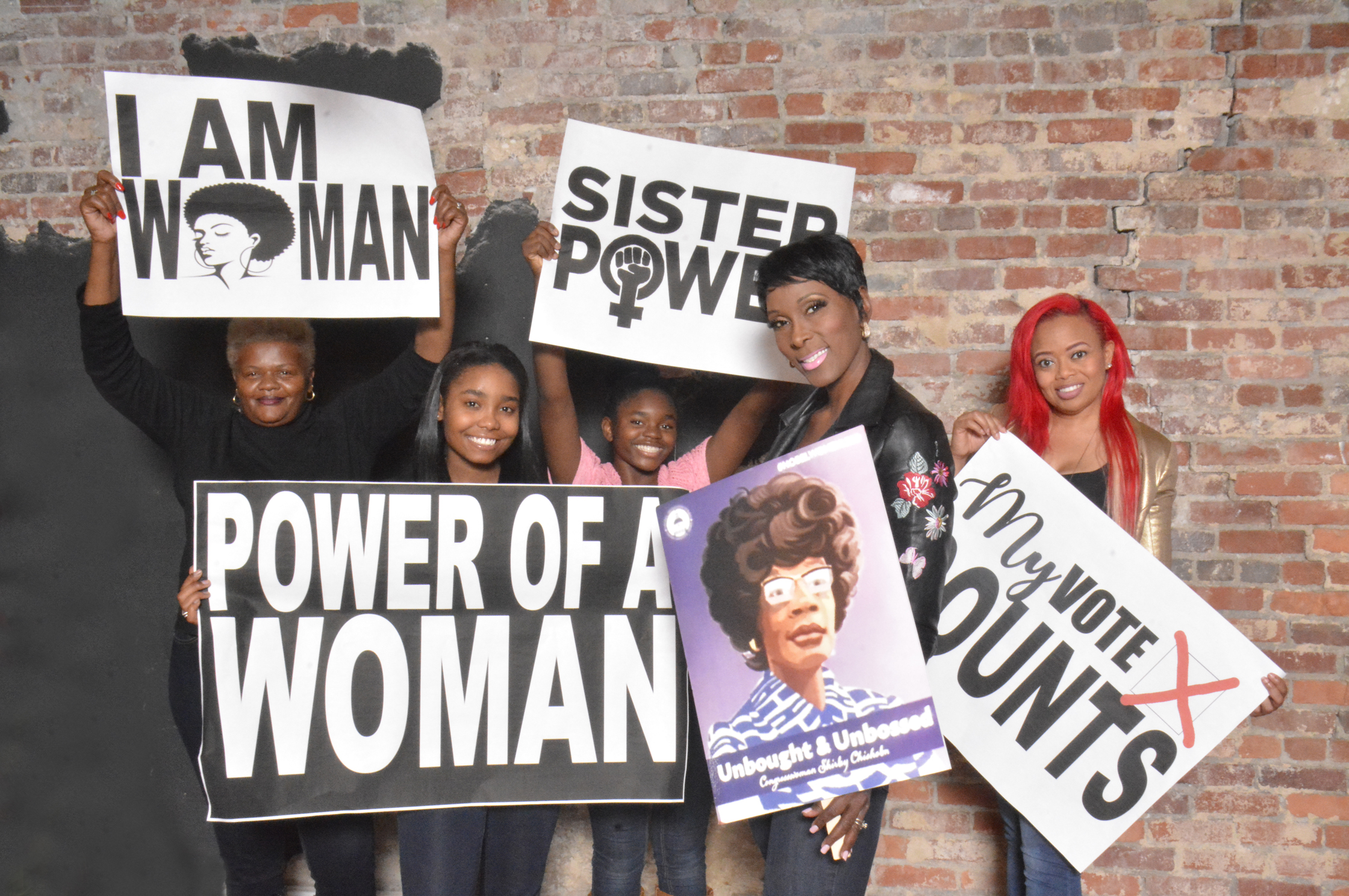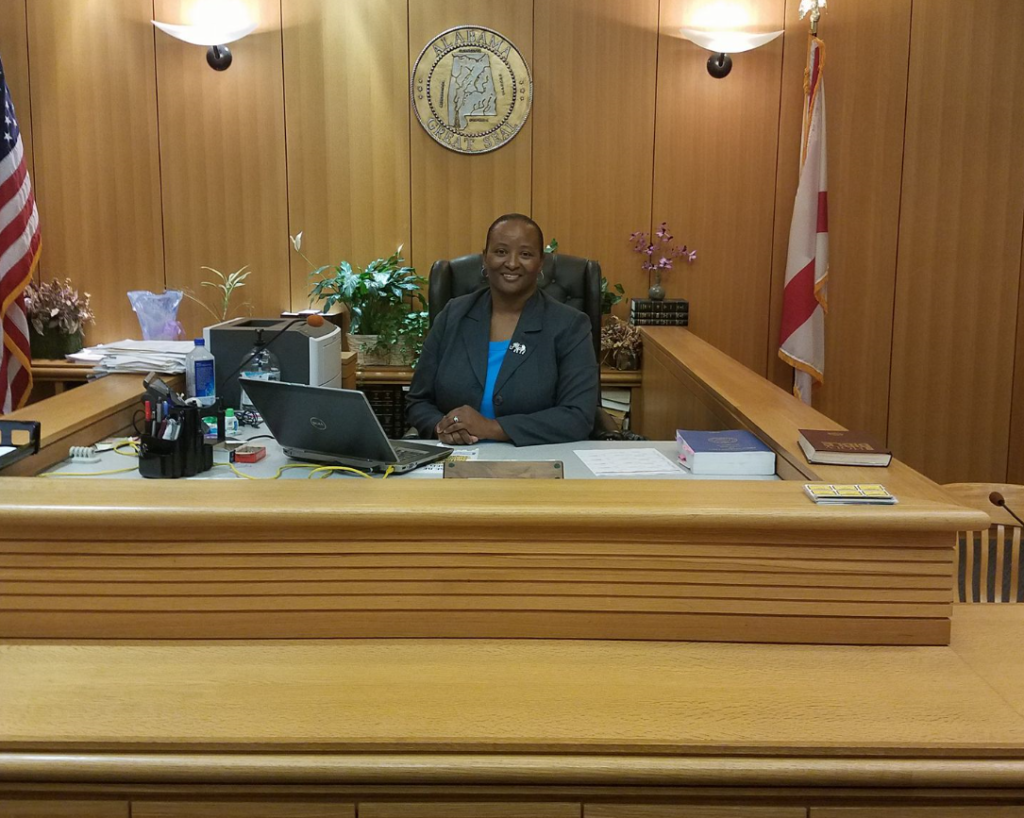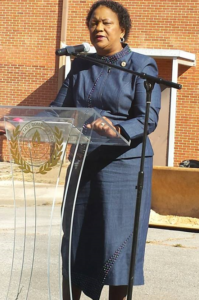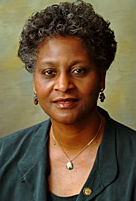
By Anita Debro
For the Birmingham Times

In December, Black women in Jefferson County sent a clear message during a special Senate election that they have the power to reshape political discourse—and the world took notice.
That may only be the beginning. In 2018, nearly two dozen black women in Alabama’s largest county are running for elected office, and the impact could be substantial.
At least 19 – all Democrats with political and legal experience– are seeking office this year: nine in judicial races; five for the state House; two for the state Senate; one for Jefferson County Court clerk; one for the Jefferson County Commission; and U.S. Rep. Terri Sewell (D-Birmingham), who has served four terms in Congress, and running for re-election.
It could be a record.
And there could be more: additional candidates who intend to run in 2018 must file by February 9. Primary elections are set for June 5, runoff elections are July 17, and the general election is set for November 6.
“More black women are stepping off the sidelines and running for political office,” said Kimberly Peeler-Allen, co-founder of Higher Heights, a New York City–based organization dedicated to helping black women get elected. “Black women feel like they have sat on the sidelines long enough, and now they want to be at the decision-making tables.”
Agents for Change
Marshell Jackson Hatcher, who operates her own legal practice in Gardendale and running for the Jefferson County Circuit Court Place 8 seat, said she was inspired by the nine African-American women in Jefferson County who were elected as judges in 2016.

“It did motivate me,” she said of the election that garnered national attention for the number of black women seated in Jefferson County. “And I decided that I was ready to get out there and work for it.”
Janine Hunt-Hilliard, a Birmingham lawyer who has spent almost 20 years in private practice, is running for Circuit Court Place 18 seat. She felt that this was her time.
“I believe the more we see people who look like us, the more we encourage others to do the same thing. We know this is attainable,” said Hunt-Hilliard, who is making her first run for office. “We really do need to make changes in this country and state, [and] I want to institute some measures that will have a better impact on family court.”
Many of the candidates see an opportunity to make a difference.
“Black women are agents for change,” said State Rep. Juandalynn Givan, a Birmingham attorney seeking re-election for House District 60. “And when we fight and we run, we can win.”
Givan has long been a believer in black women joining forces to create political change, noting her political heroes Shirley Chisholm and Maxine Waters.
“We have become empowered,” Givan said. “I look forward to seeing black women in the U.S. Senate, a black woman run for mayor of Birmingham, and a black woman run for governor of Alabama.”

The Doug Jones Effect
There’s no question that some candidates are building off the momentum created by Doug Jones—who was sworn into the U.S. Senate in Washington, D.C., on Wednesday, January 3—and the support he received from African-American women.
After Jones’s stunning victory over Republican Roy Moore in December, headlines like these appeared all over social media: “Democrat Doug Jones Won Alabama, and Twitter Is Thanking the Real Heroes—Black Women” (Glamour.com) and “Alabama’s Election Showed the Enormity of Black Women’s Voting Clout” (TheGrio.com).
Judge Carole Smitherman, seeking re-election for the Jefferson County Circuit Court Place 13 seat, said, “My initial reaction was that these are the women from the Civil Rights era, their daughters, and their granddaughters. They are manifesting the need for change and the need for us to be more proactive.
“That’s the way it is,” she said. “Big Mama tells everybody who to go vote for, and I think it was a mobilization behind Big Mama, Mama, and the whole family. These are the daughters who are direct beneficiaries of what Big Mama, Mama, and everyone else did.”

Jefferson County Commissioner Sandra Little Brown, who began her political career on the Birmingham City Council in 1997 and is seeking a third term for the District 2 seat, was not surprised that black women made such a large impact in the December 2017 special election.
“We already know that black women vote in large numbers,” she said. “And we felt good about voting … against Moore.”
According to exit polls, 17 percent of voters in the election were black women—98 percent of whom voted for Jones.
For Birmingham Board of Education member Cheri Gardner, who is seeking the Jefferson County Court clerk seat, the special senate election was a wake-up call.
“We realized the complacency we had during the 2016 presidential election was no longer effective,” she said.
Jameria Moore, who is running for the Jefferson County Probate Court Place 2 seat, agreed and said there is a lesson to be learned from the Jones campaign’s success.
“We saw that what we did [to get Jones elected] worked,” said Moore, who is making her first run for political office. “It proved to us that if we come together things can change.”
She believes the excitement generated by the Jones win can carry into 2018: “I think we now see that every vote matters.”
“Kitchen Table” Issues
Nonetheless, candidates know they cannot ride Jones’s coattails to victory in their own races.
State Rep. Mary Moore, who is seeking a fifth term to serve in the House District 59 seat, talks about “kitchen table” issues, such as education and job creation.

“So many people have moved away from here,” she said. “We want people to come back to North Birmingham to work, live, and thrive.”
Peeler-Allen of the Higher Heights political group said voters need someone who can relate to their issues: “It means you have someone representing people with a different life experience from white males, which makes for better policies.”
And that might be what is needed now, say some.
“The very fiber of our country is being challenged right now,” Smitherman said. “Women are nurturers. Even those . . . who don’t have children want to make sure the next generation is able to do more than what we’ve done. That’s our story as black women. We want the next generation to be better. We all say, ‘I want to leave the world better than I found it.’”



